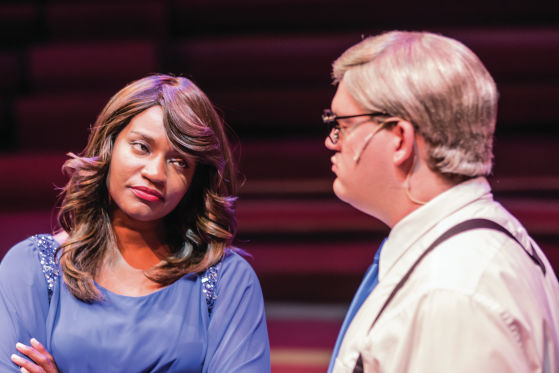
It's not exaggerating to say that the late Roger Ebert changed the profile of film criticism in the United States, chiefly through his introduction of the "generic" approach to film criticism—an innovation today accepted as standard practice—as well as the concept of critics as performers in a televised forum where colleagues exchange opinions with one another. When this high-profile journalist, after decades of confirmed bachelorhood, decided to get married, all eyes were on the woman he chose over the array of glamorous Hollywood talents with whom he was on conversational terms.
By all contemporary reports, Chaz Hammelsmith Ebert turned out to be everything a humble roly-poly prince could have wanted in a princess—a capable, successful career woman whose dowry included the strength and resilience that comes of overcoming personal demons (their at-first-sight moment occurred at an AA meeting). This was to become important in 2002—did I mention this is a true story?—when Roger was stricken with the cancer that would cripple him until his death in 2013. Through the darkness, though, he found his serenity in the unwavering bond the two of them shared, and now, if the wife (who, nearly three years later, refuses to be called a "widow") wishes to memorialize their devotion by enlisting the skills of artists, why shouldn't her request be granted by a theater company renowned for its biomusicals? The results are structured as a "tribute"—less comprehensive than a documentary but still relying for its narrative on scenes drawn from its subjects' lives. Since neither Ebert sang professionally, the score is based on songs the couple considered milestones in their relationship. Most of these, no surprise, are romantic ballads whose lyrics we may have once dismissed as frivolous suddenly—with the Grim Reaper as sideman—taking on new significance: Peter Cetera's "Baby, Please Don't Go," for example, or Kris Kristofferson's "Help Me Make it Through the Night." It's not all dirges, however—Chaz' churchgoing clan ensures the inclusion of a few restorative gospel hymns on the list.
That "generic approach to criticism" mentioned earlier mandates that art be judged on its own unique criteria. In other words, you don't fault Neil Simon for not being Tom Stoppard. Audiences in 2015 may squirm at seeing their own first-hand observations portrayed as valentine-sweet fantasy—even when presented with Rashada Dawan and Kevin Pollack's expertise. However, someday, long after our memories fade from history, Chaz and Roger Ebert will remain enshrined in the annals of enduring love stories through precisely such artifacts as this warm-hearted revue.
